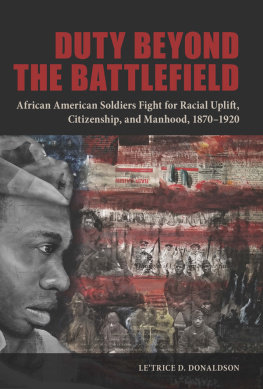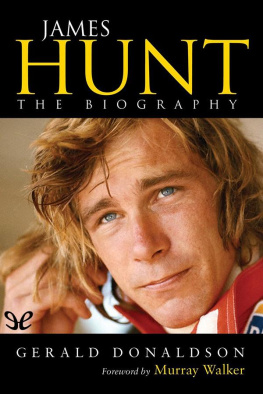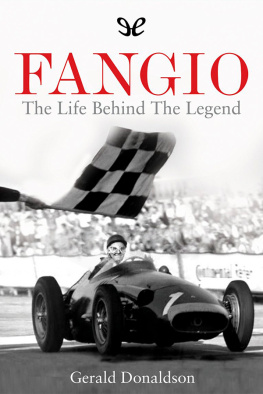Frances Donaldson - Freddy Lonsdale
Here you can read online Frances Donaldson - Freddy Lonsdale full text of the book (entire story) in english for free. Download pdf and epub, get meaning, cover and reviews about this ebook. year: 2011, publisher: Bloomsbury Publishing, genre: Detective and thriller. Description of the work, (preface) as well as reviews are available. Best literature library LitArk.com created for fans of good reading and offers a wide selection of genres:
Romance novel
Science fiction
Adventure
Detective
Science
History
Home and family
Prose
Art
Politics
Computer
Non-fiction
Religion
Business
Children
Humor
Choose a favorite category and find really read worthwhile books. Enjoy immersion in the world of imagination, feel the emotions of the characters or learn something new for yourself, make an fascinating discovery.

- Book:Freddy Lonsdale
- Author:
- Publisher:Bloomsbury Publishing
- Genre:
- Year:2011
- Rating:4 / 5
- Favourites:Add to favourites
- Your mark:
- 80
- 1
- 2
- 3
- 4
- 5
Freddy Lonsdale: summary, description and annotation
We offer to read an annotation, description, summary or preface (depends on what the author of the book "Freddy Lonsdale" wrote himself). If you haven't found the necessary information about the book — write in the comments, we will try to find it.
A biography of one of the London theatres most important wits and playwrights. Donaldson discusses the life and work of the man who wrote over twenty plays and musicals that were produced in London in the first half of the 20th century.
Freddy Lonsdale — read online for free the complete book (whole text) full work
Below is the text of the book, divided by pages. System saving the place of the last page read, allows you to conveniently read the book "Freddy Lonsdale" online for free, without having to search again every time where you left off. Put a bookmark, and you can go to the page where you finished reading at any time.
Font size:
Interval:
Bookmark:
BY FRANCES DONALDSON

To
E. M.
Frederick Lonsdale had his first play produced in London in 1908 and his last in 1950, and between these two he wrote twenty-four plays or musical plays which were produced in London or New York. The years of his greatest success, however, were the nineteen-twenties and early-thirties. This was the period, too, to which he seemed to have belonged. At no other time could the world have worn for him so much the aspect of his own home ground; at no other time could it have been so receptive to his talents or so enchanted by his person. So that, although he lived until 1954, and lived in a charmed circle of appreciation and love, he always seemed in later years to be a figure from the nineteen-twenties.
It was a curious period, as different from anything that preceded it as it was from the present day. It has been called the age of wealth without responsibility, and, if a label can be accepted that refers only to the upper classes, this is as good as any other. Self-regarded, it seemed the age of disillusion, and it was the expression of this that gave the peculiar flavour to the times. If there had been no great cause for disillusion it would all have been easier to understand, but there was a cause, and, looking back, it seems strange that so large a disturbance should have produced so shallow a despair.
It was, I think, the post-war boom that set the scene for a convalescence which, if incomplete, was luxurious and indulgent, painless and light-hearted, as compared with the struggling progress of the generation of thirty years later. The world, or that part of it with which we are concerned, after the First World War lay bleeding, but not, as after the second, poverty-stricken. The earlier generation had the means to throw off the shackles of sorrow, self-discipline and horror which for so long had held them, and so they threw them over-board completely.
They seem to have been so innocent; but, in compensation for any wisdom we may later have learned, they seem to have been so robust.
In those days they danced; they danced at tea-time, right through dinner and into the early hours of the morning. London society moved out of the salons and the ballrooms into the night-clubs; and these they attended so regularly that they remained an exclusive circle, nodding and smiling to each other across the tables and calling the waiters by name. Women of the aristocracy boasted that they had not dined alone with their husbands in two years, and dbutantes, sidling at midnight into some crowded, dark and smoke-filled cave beneath the streets of London, called to their elders: Dont tell Mummy. All that throng that permanently in England press upwards from the middle classes to form the periphery of an esoteric group imitated the manner of this little circle, whom they still regarded, if not as their betters, at least as the stars of a drama in which they were determined to furnish the chorus. Nowadays when they meet, they sadly say to each other: I dined at the Savoy Grill last night. There was not one single soul I knew.
The money that was earned in the post-war boom was spent on the race-courses of England and in the casinos of France, on country houses, and on the least formal but materially the most perfected hospitality ever known. Golf, tennis and back-gammon were taken seriously; more gin was drunk and less wine; the daughters of rich men could get through the day without either social work or a job in a hat shop; The Green Hat (he died for purity) was a best-seller. They were not patrons of the arts; and, when the slump came and men stood on the streets in Jarrow, although they cut down their domestic staff, it was not considered necessary to discuss social guilt at a dinner party in London.
But they still felt responsible for their own personalities. They were aware that man is born to suffer and to die, and they felt that this knowledge might be drowned in old brandy; but few people yet seriously believed that the whole thing could be avoided by going to a psycho-analyst, or by a judicious use of benzedrine. As a result they knew where they stood on all sorts of matters which to us present difficulties. They thought it proper to loathe homosexuals and to be bored by the clergy, they regarded security as a thing of the past, but they still used ridicule as a weapon to combat socialism.
In those days it was thought not merely usual but also becoming for famous men to carry a little side; a mans position in life could be assessed by the entrance he made into a room; and, unless my imagination betrays me, great men cultivated not simply a more impressive manner, but more ponderous or more comical heads.
It was still thought nice to be rich. This was the age of Miss Runcible and Lady Metroland, figures who, ruthlessly irresponsible, teetered to their doom, but did so with an elaborate indifference which only wealth and rank make possible, and with some relish. Nowadays, if they wanted to gain any attention at all, they would have to be confined to flats in mews, dressed in pink silk crocheted sweaters, and no ray of pleasure could be allowed to disturb the squalid failure of their lives.
In the theatre there was a very sharp distinction between the West End theatre and the Highbrow theatre, represented by the Old Vic and the repertory companies, and when John Barrymore played Hamlet for a limited season at the Hay-market there was much speculation beforehand as to whether he could fill the house. In those days, boys who, on long leave from Eton, went to the opera, reported on their return to school only the visit they had made to the Coliseum.
At the head of the acting profession stood Sir Gerald du Maurier, the leader of what is now called the natural drama, and despised as an inartistic and unimportant departure from tradition. He was a man of his times, and it may be true that he had no depth, or variety, or genuine emotion, or force, or sensitivity as an actor; he may have lacked the cerebral intuitions that lie behind great art, and regularly portrayed on the stage the same character he portrayed in his life. In spite of these defects he created a revolution. With studied and elegant carelessness, he destroyed overnight the whole school of what Mr. Harold Hobson calls rumbustious acting, and put the modern meaning into the theatre word ham. On any historical view he must be seen to have paved the way for the finely perceptive performances we receive to-day. It takes a man of quality to create an artistic revolution, a man of genuine talent to act even as a stepping-stone, and I think myself that du Maurier deserved greater respect than the more priggish of our dramatic critics are nowadays apt to give him.
He was a great director too, and the actors and actresses who, having played with him, still remain with us remember him as amongst the best they have known. They themselves are much sought after on the rare occasions when it comes to high comedy. Du Maurier was at all events a great personality, about as natural on or off the stage as canard sauvage au bourgogne or a wild mink coat.
The dramatists of the day were professional and many were very successful. It is sometimes said now that they wrote only good bad plays, but it has yet to be proved that this is a lesser achievement than writing bad good plays, that entertainment is not the natural business of the theatre, or that squeamishness, unless backed by exceptional talent, produces a finer tradition. The theatre of that day may stand low in the annals of culture, but it depended much less on brilliantly acted revivals, on the French and on the Americans.
Font size:
Interval:
Bookmark:
Similar books «Freddy Lonsdale»
Look at similar books to Freddy Lonsdale. We have selected literature similar in name and meaning in the hope of providing readers with more options to find new, interesting, not yet read works.
Discussion, reviews of the book Freddy Lonsdale and just readers' own opinions. Leave your comments, write what you think about the work, its meaning or the main characters. Specify what exactly you liked and what you didn't like, and why you think so.






